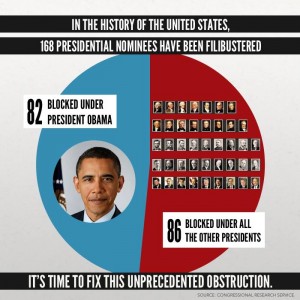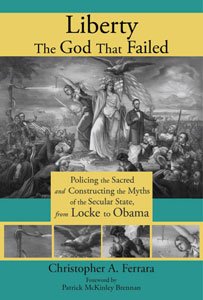Hi, Gerv,
I’m sure you’re inundated, and you sure as heck don’t know me, so there’s no need to respond to this. But I really appreciated your post the other day, and wanted to share my reaction with you. Perhaps it will be of some use in figuring out Mozilla recovers from this catastrophe.
As I see it, there are still two big reasons why I and people like me — broadly speaking — are going to have to withhold support Mozilla for the foreseeable future, even after our current anger subsides:
(1) In your post, you give the public your assurance that Brendan really did leave of his own accord; that he really wasn’t forced out; that the Board actually fought to retain him as CEO. The problem is that your assurance is not a very strong authority outside Mozilla’s walls, and it has to be weighed against the evidence. This certainly looked, from the outside, like a standard corporate decapitation, where the Board decided to fire the CEO and allowed the CEO to “resign” only to retain his own dignity.
We saw Brendan promising never to resign just a couple days before he did. We watched Robert George predict — to all appearances accurately — how this was going to play out. We heard the dead silence from the principal players. (Why hasn’t Brendan said a word in defense of Mozilla since he left?) We noticed that all other accounts of his resignation say the Board tried to retain Brendan as CTO — but pointedly not as CEO. Above all, we read Mitchell’s (very unfortunate) blog post on Resignation Day. In that post, she seemed to concede that Brendan never should have been hired, that “equality” trumps free speech in this case, and that Mozilla’s biggest takeaway from all this is that, given the chance to do it all again, they’d have fired Brendan even faster.
In this light, your anonymous sources are just not very convincing, even given your bona fides as Mozilla’s last public marriage traditionalist. (Perhaps especially given those bona fides: what happened to you two years ago would seem to support the suggestion that Mozilla’s commitment to inclusion is skin-deep at best.)
(2) Even if you are absolutely right, and leaving was entirely Brendan’s idea, it still sends a terrible message to the world: “Mozilla can be bullied. We cannot protect our leader from a bunch of petty thought police on the internet. We will leave him on the front line, alone, to take 100% of the incoming fire, and then we’ll thrust the blame on ‘outsiders’ when the wounds take him out.” If that’s the case, then perhaps Mozillans really do still believe in the radical inclusion the project was founded on — but it hardly matters, because Mozilla is no longer calling the shots. The bullies have taken control, and Mozilla is impotent to resist their imperious will.
In either case, Mozilla is not something many of us feel we can be a part of — or should be — right now.
You mention forgiveness. If Mozilla wants forgiveness (and I am not even convinced that it wants to be forgiven as forgotten right now), I think it will have to demonstrate some level of repentance and some level of autonomy.
First, repentance: Mozilla must recognize that what happened was not a causeless tragedy that mysteriously destroyed the co-founder like a bolt of lightning. This happened because the entire community failed. It wasn’t just the few who raised their voices in protest against Brendan. It was also those who were publicly ambivalent and conflicted (there were so many!), and even those who supported Brendan but refused to put their foot down and demand that he be retained. The community either openly attacked or (more often) simply failed to defend either the principles of the project or the concrete policies that give those principles life. The community’s reluctance to close ranks around the project — not the CEO or his particular beliefs, but the whole concept of an open-source browser that everyone can be part of — was the key fact that made the subsequent media bonfire successful. It was a sin by the entire community, and it needs to be acknowledged and addressed by the whole community, not just in individual “I feel sad we lost Brendan” posts on Planet Mozilla.
Second, autonomy: social conservatives need to know that Mozilla not only regrets what happened to Brendan, but that it has the desire and ability to make sure that nothing like it will ever happen again. That people who have “offensive” political opinions still have a place at Mozilla, that our contributions are valued, and that we can even become leaders within the organization. That Mozilla has not been conquered by ideological interests at Slate and Salon and OKCupid, but remains a genuinely global project that embraces literally anyone who is willing to work toward the (crucial!) goal of a free and open web.
I don’t know how Mozilla might go about doing this, and (unlike those who waged war last week) I don’t presume to dictate terms. I only know that Mozilla has done absolutely nothing whatsoever since the resignation to restore our sense that it is a “safe space,” and I know that it cannot ever do that without positive action of some kind. When a university administration is accused of discriminating against racial minorities, they will often establish programs and endowments to ensure that members of those minorities are hired and are able to contribute to the university project without fear of reprisal or undue discomfort. Perhaps (perhaps) something along the same lines for ideological minorities would help restore the public trust.
For now, however, I’m afraid I won’t be on my favorite browser, and neither will my clients. This is written from Chrome, which is gross… but at least I know I could go to Google and have a productive career there despite my private beliefs… even if they harvest all the data about my private beliefs and sell it to the NSA.
I don’t know where the open web goes from here, but, fundamentally, a web controlled by the same forces that led to Brendan’s resignation is not an open web at all — except for those privileged to have the “right” opinions. That means Mozilla, as it currently looks from out here, as it currently operates, cannot carry forward the open-web ideal — not until this is addressed and corrected.
Maybe this all looks completely different from within the Mozilla community. I don’t know; I’m pretty much just a longtime fan and user and promoter, not a contributor. And there are my two cents.






